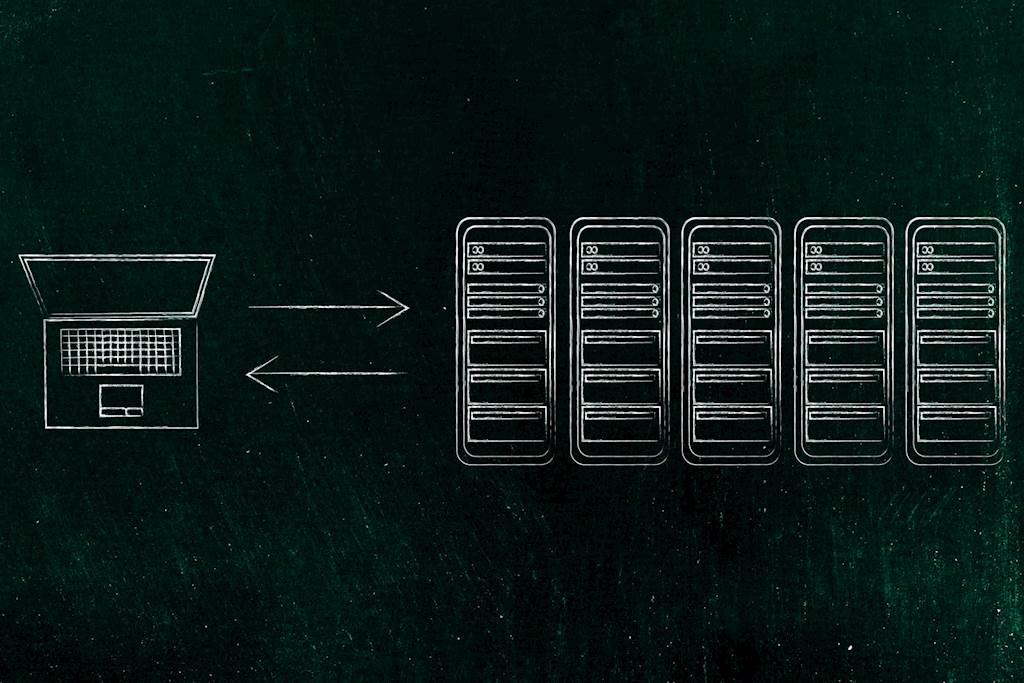Data is now essential to the successful running of any business. In today's digital environment, there are more opportunities than ever for businesses to gather raw data and turn it into useful information about their company, their customers or the wider industry.
As technology has advanced, the amount of information available has grown exponentially - indeed, it's estimated that in 2017 alone, more data was created than in the entirety of previous human history.
This raises the obvious question - where will all this information be held? With increasing demands for both higher capacity and improved performance, what technologies should enterprises be looking at in order to make sure they are able to make the most of their data?
Disk-based storage
The most familiar option for many people, hard disk drive (HDD) storage is certainly still the least-costly way of acquiring data storage capacity, but with newer technologies falling in price, some IT pros will be wondering whether it is still worth provisioning HDD solutions for the long term. The key question surrounding this right now is whether it has a future. While it's been the standard for many years, HDD is now significantly outperformed by solid state drives (SSD) when it comes to issues such as speed.
At the moment, the lower costs for HDDs can more than make up for their lesser performance compared with options like SSDs - especially when it comes to managing large volumes of data. Once businesses start collecting terabytes of data, the tried and trusted method can be much easier to manage.
Hybrid solutions
But what about when you have a need for greater speed than HDDs alone can provide? This could be where a hybrid solution that incorporates both HDDs and SSDs can be highly useful, particularly for business that need to store large quantities of data but will still have high performance demands in specific situations.
In a hybrid array, HDDs can be used as the primary storage solution, but certain data sets that need to be accessed at speed and on a regular basis can take advantage of the performance benefits of SSDs. This is often viewed as a 'best of both worlds' system, as it provides access to both the capacity and cost advantages of HDDs and the performance of SSDs. However, it will remain a compromise that does not offer the speed of all-flash solutions, which could be an important factor for businesses that demand the highest levels of performance.
All-flash storage
If performance is a primary concern, all-flash arrays should be a serious consideration for enterprises. This stores all data on SSDs, therefore taking advantage of this technology's low latency, smaller footprint and lower power consumption, among other benefits. This translates to significantly improved I/O performance and greater efficiency across all workloads.
When it comes to cost, the prices of flash arrays have fallen significantly in recent years - though they still remain higher than HDD devices of equivalent capacity. But as demand for these solutions continues to rise and manufacturing at scale becomes more efficient, the gap is expected to continue falling in the coming years to approach parity.
Aside from costs, all-flash arrays could prove more resource-intensive and will typically offer lower capacity than HDD or hybrid solutions. However, the speed benefits, as well as the additional reliability that comes from having no moving parts, could well lead businesses to favor them for performance-critical applications.
What about the cloud?
These options are all relevant if businesses are continuing to rely on on-premises data centers for their storage needs, but increasingly, this is no longer the case. Indeed, many enterprises are turning to cloud computing solutions to meet every aspect of their business' needs, including storage.
Cloud storage providers, which enjoy the benefits of scale, can offer all-flash and can take much of the work out of deploying and managing storage solutions. Businesses can choose options that suit the performance and cost levels that they need and, with the scalability that the cloud offers, capacity issues should not be an issue.
The main benefits of this option include availability, as the data can be accessed anywhere, at any time, with speed and reliability. As the provider is responsible for backing up data and upgrading their solutions to keep up with evolving technology, you don't have to worry about your options becoming obsolete as devices approach the end of their lifespans.
However, there are questions over security, bandwidth limitations and data management that have to be considered before going down this route. Therefore, businesses will have to consider their options carefully before committing to this route.
Access the latest business knowledge in IT
Get Access




Comments
Join the conversation...